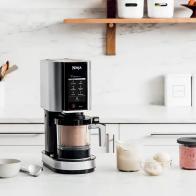Talking to the Experts: Supermarket Dietitians

Wondering which crackers are better for you? Or what to eat for a healthy heart? At many supermarkets across the country, there's an in-store dietitian to answer your questions and help you compare food labels. As more grocery stores around the country jump on the trend of hiring an in-house nutrition expert, I spoke to the dietitians at ShopRite supermarket in White Plains, New York about what they do and what you should ask your market's dietitian.
First I spoke with Natalie Menza, MS, RD, Corporate Dietitian for Wakefern Food Corp to get the inside scoop of the role of the in-store dietitian.
Currently, we have 21 ShopRites that feature retail dietitians. The retail dietitian program was implemented five years ago with just a few stores and received such a positive response from our customers that this number just continues to grow.
As part of ShopRite’s commitment to helping its customers live healthier lives, there's an on-site registered dietitian available in select stores on a daily basis for customer consultation. This free service offers customers the opportunity to discuss their health and dietary needs with a nutrition professional. Our customers consult with our retail dietitians on a number of issues, including learning how to shop for healthy meals, proper nutrition for specific medical conditions or how to get more fruits and vegetables into their diet. Our dietitians can also work with customers to schedule monthly screenings for specific health issues such as diabetes or high cholesterol.
Weight loss, diabetes and heart health seem to be top of mind with our customers. We also get a lot of questions on gluten and other food allergies. When it comes to any of these health issues or allergies, customers need help finding the right product, learning how to read food labels and simply understanding what their specific needs might be. Once the customer is educated on these issues, our dietitians can really work with them to create tactical plans to address their individual needs – recipes, meal ideas, menu plans, healthy snacking lists, shopping lists. Our retail dietitians can really help to make our customers lives easier – and healthier – in the convenience of their favorite supermarket!
- Always read labels.
- When shopping produce, make sure to choose a variety of colors for a wide range of nutrients.
- Make half your grains whole grains.
I also spoke with Stacey Jackson, MS, RD, Retail Dietitian at ShopRite of White Plains, NY.
Our customers LOVE this service. Not only does an in-store dietitian set the foundation for a healthier community – something we at ShopRite are very passionate about – but the on-site presence of a health professional is an invaluable tool when it comes to shopping to support the diverse needs of your family. Whether it’s navigating the confusion of food labels, deciphering the information you’ve pulled off the internet, creating a healthy alternative to a favorite recipe or helping to consult with our on-site pharmacists about drug interaction, ShopRite’s retail dietitians are here to help.
Another big part of our program involves partnering with various community organizations, such as the local youth bureau and food pantries, to teach kids and adults alike about the importance of a healthy lifestyle through store tours, cooking demos and in-store seminars. And we are delighted to provide ALL of these services – for groups and individuals -- for free!
For more information about ShopRite's programs, please visit www.ShopRite.com .
Toby Amidor, MS, RD, CDN, is a registered dietitian and consultant who specializes in food safety and culinary nutrition. See Toby's full bio »


































